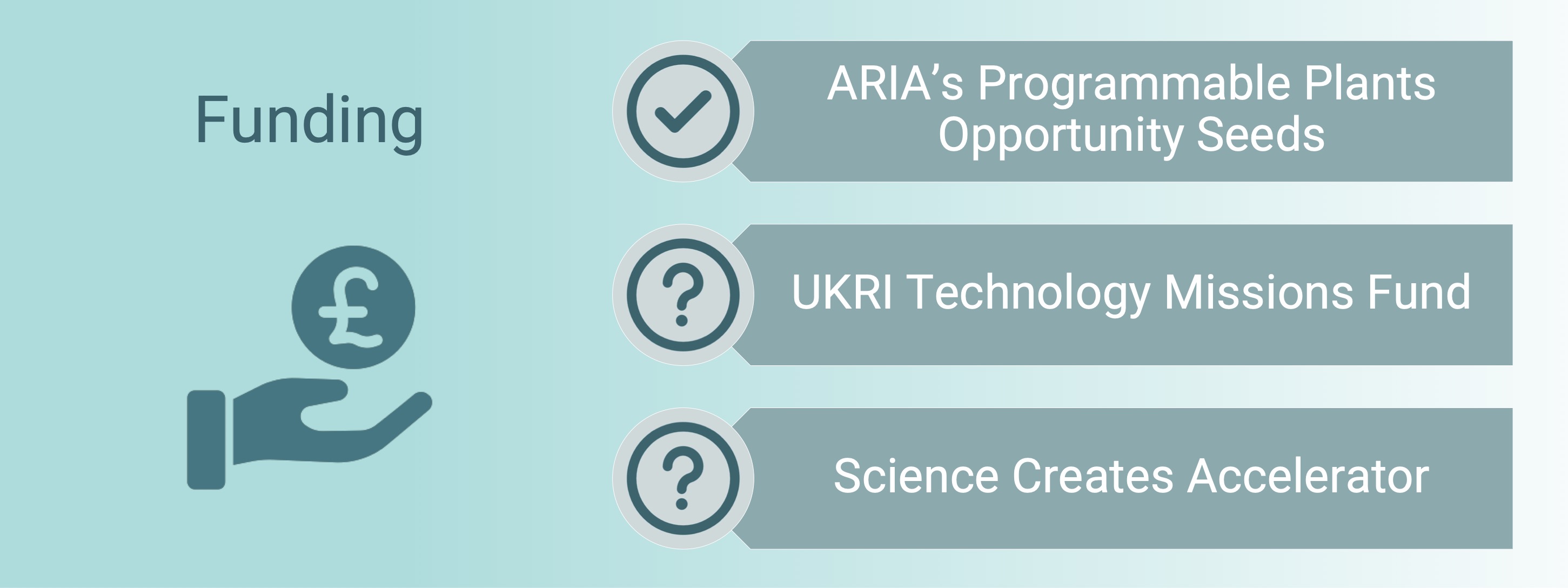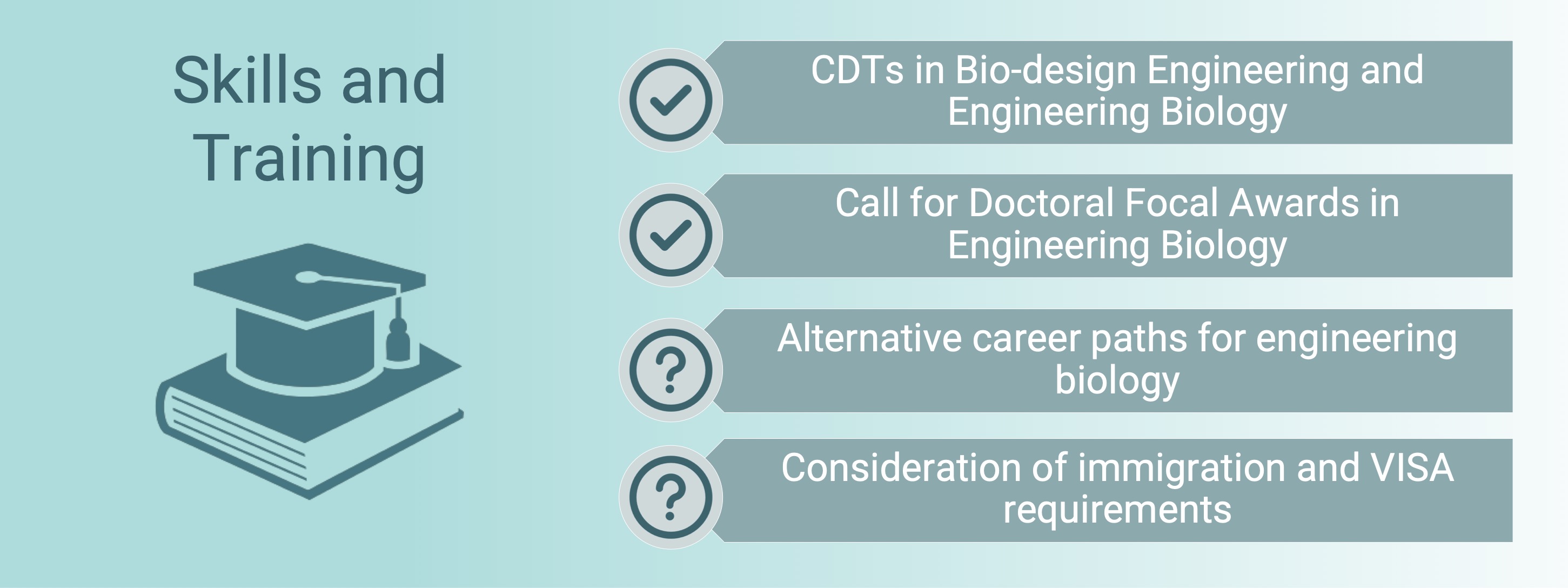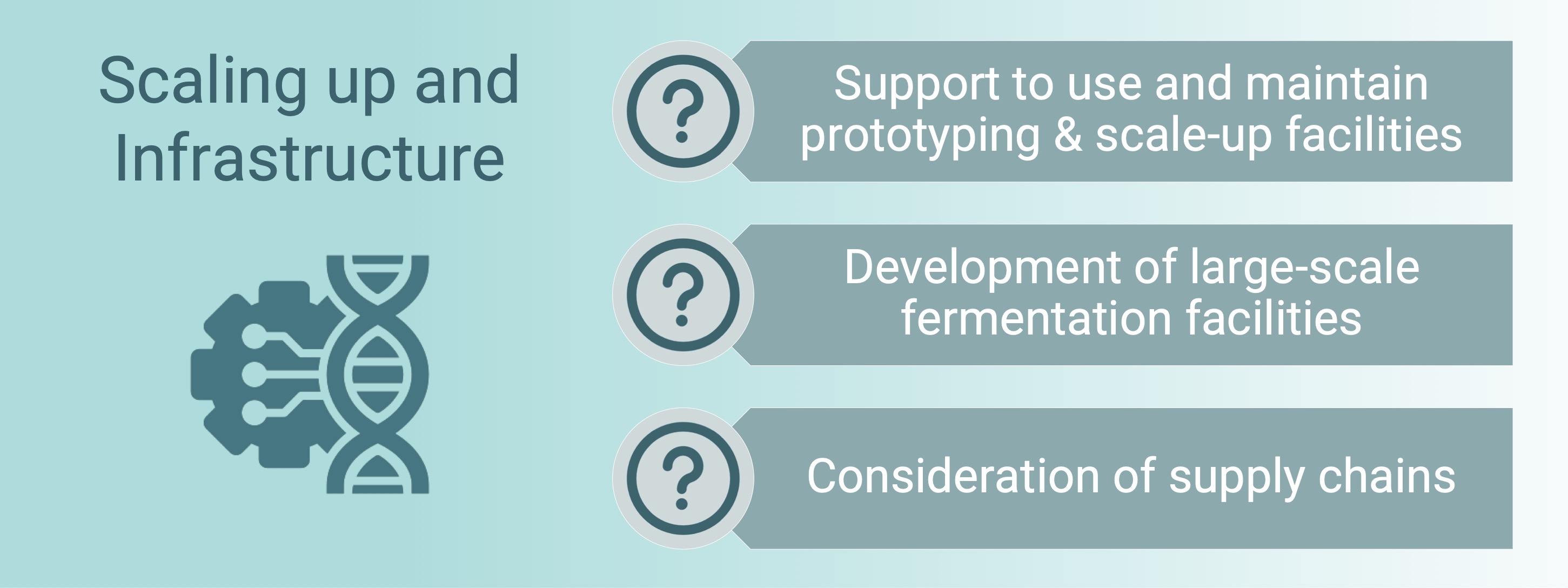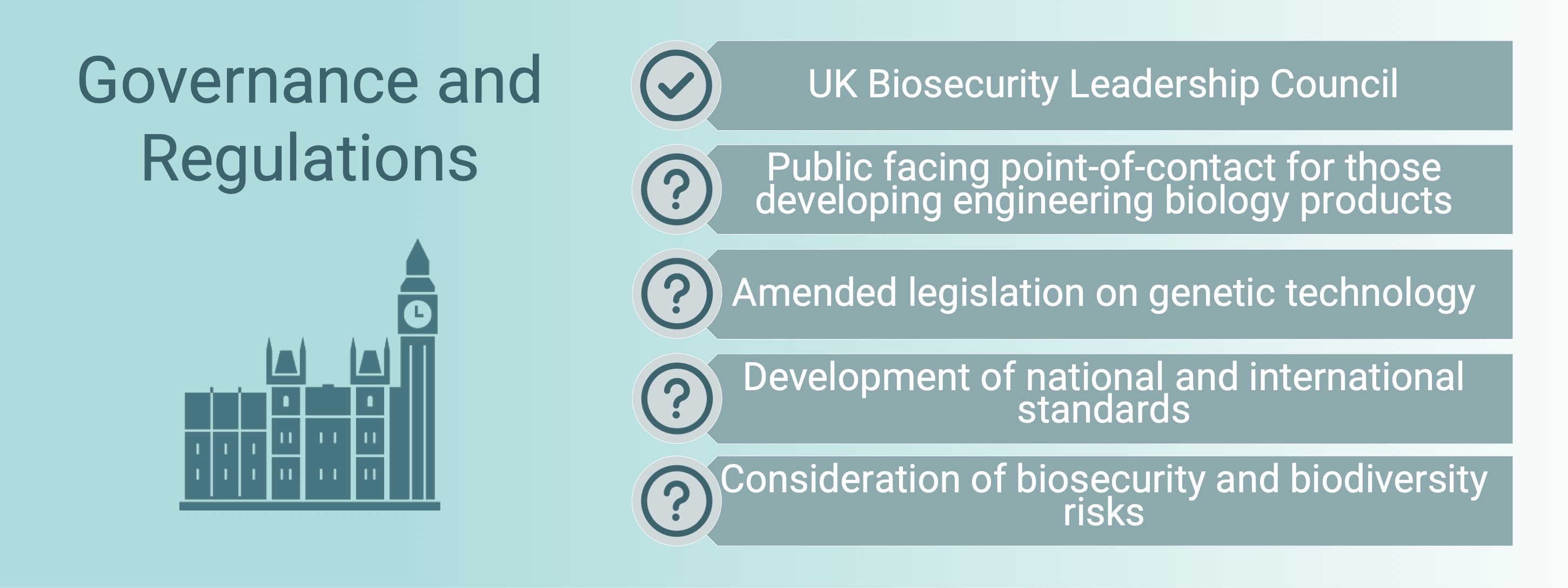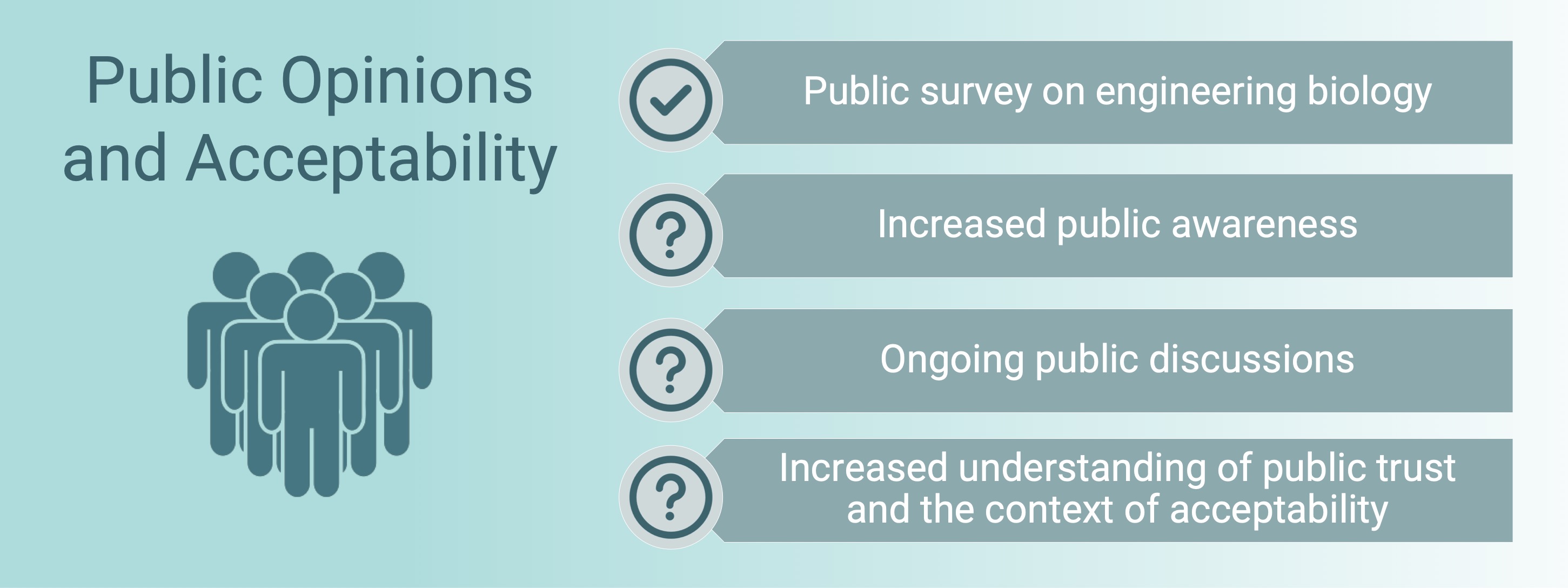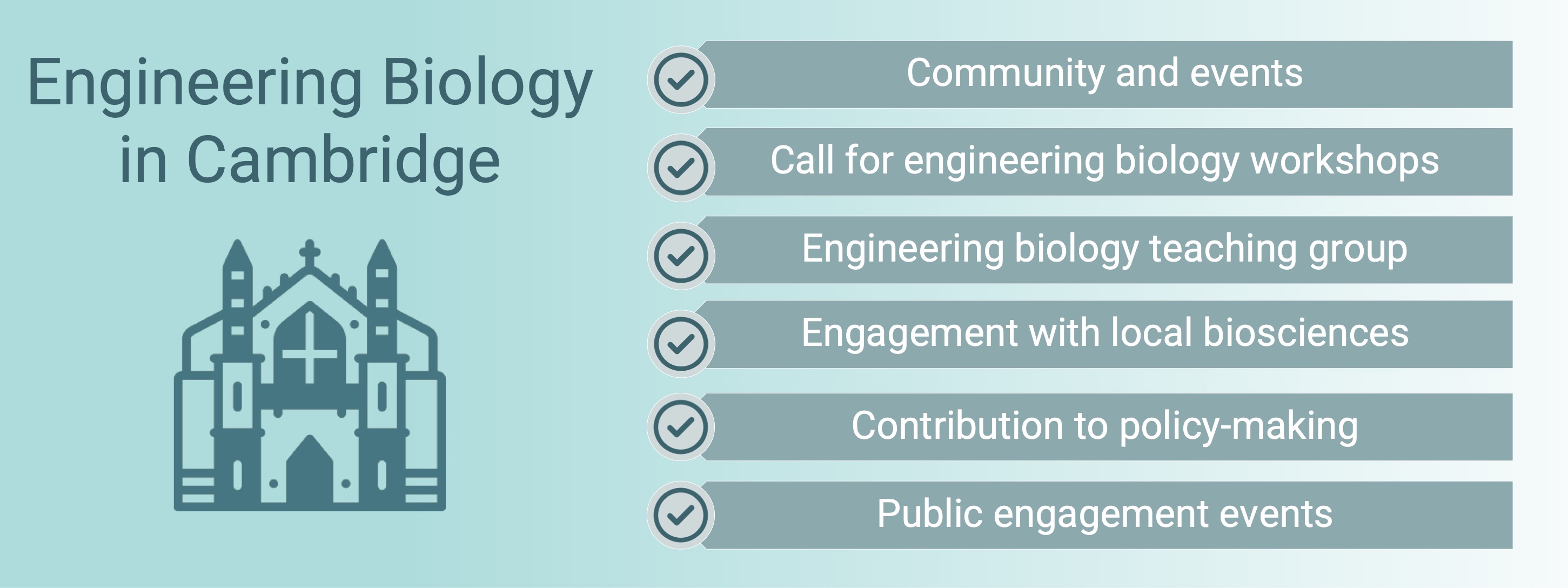
Submitted by S.A. Norwood on Mon, 27/01/2025 - 13:56
The end of 2024 and beginning of 2025 have seen a flurry of reports, surveys, recommendations and articles about the potential of Engineering Biology to impact UK society and economy. So what does it all mean? And what might 2025 have in store for the UK engineering biology community?
The opportunity of engineering biology
In 2023 the UK Government identified Engineering Biology as one of it’s top five priorities for research1, followed shortly by publishing its “National Vision for Engineering Biology”2. Since then the field has been emerging into the spotlight with scientists, policy makers and the public alike becoming more aware of the possibilities of this exciting field.
Engineering biology is an evolution of synthetic biology, encompassing the wider capabilities of the biosciences, engineering, and the physical sciences to support the exploitation of synthetic biology knowledge for economic and public benefit. It is an interdisciplinary field that spans the entire innovation ecosystem, from breakthrough synthetic biology research to translation and application.” UKRI
In 2024 UKRI’s Engineering Biology Missions Hubs and Awards contributed £100m funding for new research projects, with four of 22 Mission Awards led by Cambridge teams3, the House of Lords undertook an enquiry on engineering biology prefaced by a briefing from IRC Co-Chair Dr Jenny Molloy and Prof Lionel Clarke, former Chair of the UK Synthetic Biology Leadership Council4, UKRI published a digital showcase celebrating UK engineering biology which highlighted Cambridge spin-offs Colorifix and Beneficial Bio5, and DSIT ran a survey on public trust in the field6. Already in 2025 we have seen the House of Lords publish their recommendations to the UK government7, the Royal Society host a conference on how engineering biology is transforming our future featuring Dr Nicola Patron from Department of Plant Sciences and local biotech leaders Colorifix and Start Codon8, and the Regulatory Horizons Council publish its advice on governance.9
Baroness Brown of Cambridge shares an overview of the House of Lords report on seizing the opportunity of engineering biology.
Increased interest in the field provides both exciting opportunities and a chance to consider potential obstacles and risks. As highlighted in the House of Lords report, there is a short window for the UK to seize this opportunity and establish itself as a world leader in engineering biology. So what can we expect in 2025?
Opportunities for Funding
Potential sources of engineering biology research and development funding in 2025 include:
- UKRI Technology Missions Fund: This fund has already funded the mission hubs, mission awards, an accelerator and a series of collaborative R&D projects and is proposed to deliver Seed Corn funding (two years, £4 million total) and Proof-of-Concept activity (two years, £3 million total) by the end of 2025. Sign up for notifications of UKRI funding opportunities
- ARIA’s Programmable Plants Opportunity Space: ARIA’s programmable plants programme has recently opened a call for seed funding with up to £500k funding over three years for projects in the programmable plants space. Information on ARIA’s Programmable Plants Opportunity Seeds
- Science Creates Accelerator: Science creates ran their first round of engineering biology accelerator funding to support engineering biology start-ups in 2023. Sign up for notifications for Science Creates Accelerator
For regular updates on engineering biology funding opportunities, you can join us or sign up to our newsletter.
Skills and Training
Recruiting, training and maintaining a diverse talent pool of interdisciplinary scientists in the UK is highlighted as a key requirement in both the National Vision and House of Lords report. Recommendations include funding more doctoral training centres, providing more routes into the sector, including apprenticeships, degree apprenticeships, and masters level conversion courses, and rethinking the government’s attitude to immigration for skilled workers.
Current PhD studentship opportunities include the CDT in Bio-design Engineering (Imperial College London, University of Manchester, UCL) and the CDT in Engineering Biology (Oxford and Bristol). And in January 2025 UKRI published a call for a new Doctoral Focal Award in Engineering Biology to fund 33 studentships per year for three years starting in October 2026.
Scaling-up and Infrastructure
The National Vision for Engineering Biology, House of Lords report and the recent Royal Society conference have all highlighted the need for increased support for UK engineering biology companies to scale-up. In order for UK engineering biology companies to remain in the UK and bring their products to market, support is needed both financially and in terms of infrastructure.
Recommendations in the House of Lords report include more continuous financial support to maintain and use existing services, such as the biofoundries and the Centre for Process Innovation, as well as a need for more scale-up infrastructure, in particular large-scale fermentation facilities. The National Vision says that the government will develop a plan for UK facilities that supports lab-scale and pilot-scale innovation, explore the range of public and private funding models that could increase accessibility, and consider how to create resilient supply chains. Whilst this kind of support requires long-term planning and implementation, we hope we might see plans developing over the coming year.
Governance and Regulations
Along with the rapid development of any new field comes the need to develop regulations and governance strategies. Previous activity in this area includes the establishment of the Engineering Biology Regulators’ Network (EBRN) and UK Biosecurity Leadership Council in 202310 and the Regulatory Innovation Office (RIO) in 202411. In December 2024 the National Physical Laboratory published its ‘Standards and metrics for Engineering Biology in the UK’12 which hopes to help address the issue of establishing coherent industry standards.
The House of Lords highlighted the need for a single, public-facing point of contact for people developing engineering biology products to better understand the regulatory requirements. They also recommended the passing of secondary legislation for the Genetic Technology (Precision Breeding) Act 2023 and advised that the UK should work with the International Organization for Standardization (ISO) to help develop international standards.
In the area of Biosecurity, key areas to address include the need for biosurveillance, population-level pathogen testing and rapid-response vaccine development to mitigate the risk of potential future pandemics. DNA synthesis screening and managing risk to biodiversity are also mentioned as key considerations. The UK Biosecurity Leadership Council, including EngBio IRC member Dr Lalitha Sundaram, are leading on this work with a remit to support the government in understanding new technologies and the risks they pose, including at the intersection of engineering biology and AI, and developing regulations that ensure responsible and safe technology development.
Recommendations from the Regulatory Horizons Council’s recent report also include that engineering biology products should be governed based on their properties rather than on the technology used to develop them (e.g. GM vs. precision editing), a recommendation previously supported by Cambridge researchers in a Royal Society policy briefing13.
Public Opinions and Acceptability
The Nation Vision discusses responsible and trustworthy innovation as a key factor for realising the full potential of engineering biology and commits to developing robust insight into public attitudes towards engineering biology.
In December 2024, DSIT published its findings from a survey on public trust in engineering biology which found that, whilst (unsurprisingly) public awareness of engineering biology was low, generally public attitudes are positive. Respondents were primarily concerned with whether or not products would be safe for consumption and use, and that information is provided so that people can make informed choices. We hope that this survey will act as a starting point for increased engagement and open discussion with the public on engineering biology, and a better understanding of the context of public opinions and trust in engineering biology
Engineering Biology in Cambridge 2025
2024 was an excellent year for engineering biology in Cambridge. Our EngBio community is growing, with our membership increasing by over a third in the last year and a series of successful events hosting over 450 attendees. Cambridge researchers received funding from five engineering biology mission awards and hubs and are leading the UK team of the new International Research Center for Enhancing Plant Resilience. Our members have also contributed to policy discussions including contributions to the House of Lords inquiry, events at the Centre for Science and Policy, international delegations and as members of advisory panels and councils.
In 2025, we hope to continue to support our growing community to contribute to the future of UK engineering biology.
- Community & Events: We welcome new members from both the university and surrounding bioscience community at any stage of their career. We will continue to host our regular event series, and you can keep up to date with events, news and opportunities via our mailing lists and newsletter.
- Opportunities for Funding: The EngBio IRC provides small scale funding for events and pilot-scale research. We currently have an open call for engineering biology workshops with the aim to support large-scale funding bids. We also accept applications for small-scale events funding on a rolling basis, so please get in touch.
- Skills and Training: We have recently established an engineering biology teaching group, and members interested in joining this group are invited to get in touch. We can also support training and skills workshops throughout the year, so please forward any ideas.
- Scaling-up and Infrastructure: Over the next twelve months we are looking to engage with the local biotechnology and wider community in the Greater Cambridge area. If you are a local company or organisation interested in working with engineering biology researchers at the university we’d love to hear from you!
- Governance and Regulations: Our members continue to contribute to policy, governance and regulation discussions through organisations such as the Centre for Science and Policy and the UK Biosecurity Leadership Council. Researchers interested in the area are welcome to contact us.
- Public Opinions and Acceptability: We are excited to contribute to the growing public discussion around engineering biology, starting in March 2025 with two events at the Cambridge Festival. If you are interested in sharing your work and passion for the field with the public we are now calling for volunteers for these events. We hope to continue this work later in the year, working with the Kavli Centre for Science, Ethics and the Public.
|
Keep up to date with the latest news events and opportunities from the Cambridge Engineering Biology IRC by joining us, or signing up to our newsletter. |
References and Links
- The UK Science and Technology Framework: taking a systems approach to UK science and technology. Department for Science, Innovation and Technology. (2023)
- UK Government publishes a “National Vision for Engineering Biology”. EngBio IRC. (2023). National Vision for Engineering Biology. Department for Science, Innovation and Technology. (2023)
- Cambridge Receives Four Engineering Biology Mission Awards and a Mission Hub Collaboration. EngBio IRC. (2024). New £100m fund will unlock the potential of engineering biology. UKRI. (2024)
- House of Lords Exploring Potential of Engineering Biology. EngBio IRC. (2024). Engineering Biology Inquiry. House of Lords. (2024)
- Engineering Biology Showcase. UKRI. (2024)
- Engineering biology public trust survey findings. DSIT. (2024). Public trust in engineering biology? Richard Milne, Kavli Centre for Ethics, Science and the Public. (2024)
- Engineering biology could bring us to the cusp of a new industrial revolution. How can we seize the opportunity? House of Lords. (2025). Don’t fail to scale: seizing the opportunity of engineering biology. House of Lords. (2025)
- Transforming our Future: Engineering Biology. The Royal Society. (2024)
- The Governance of Engineering Biology. Regulatory Horizons Council. (2025)
- Building a Secure and Resilient World. EngBio IRC. (2023). UK Biosecurity Leadership Council. UK Government. (2023)
- Game-changing tech to reach the public faster as dedicated new unit launched to curb red tape. UK Government. (2024)
- Standards and metrics for Engineering Biology in the UK. National Physical Laboratory. (2024)
- Cambridge and Norwich Researchers Urge Government for Evidence-Led GM crop regulation. EngBio IRC. (2023). Enabling genetic technologies for food security policy briefing. The Royal Society. (2023)


